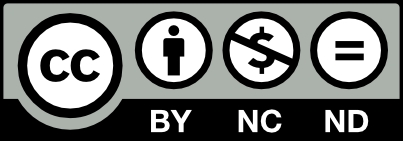 CC BY-NC-ND
CC BY-NC-NDThis work is released under a CC BY-NC-ND license, which means that you are free to do with it as you please as long as you (1) properly attribute it, (2) do not use it for commercial gain, and (3) do not create derivative works.
Ross Woods, 2024
The process for writing a history for a dissertation or thesis is similar to any other kind of research. You need a suitable topic, problem, and research question. To write an original history, you will need to work with original sources as much as possible:
You can expect that there is already a literature on topics related to yours. This will give you not only a context but also materials for a literature review.
While it looks quite simple, the purposes of historical study are not quite so obvious.
What happened?is only technical history. It does not address meaning.
Why did something happen?is a lot more useful. To ask “Why is it so?” is often to ask an historical question.
In many cases, you want to find out their "lived experience" not just a set of facts of what happened.
Most of the work is conducting interviews that draw out facts as well as people's perceptions and interpretations. The principles are generally the same as conducting interviews for other purposes. You then need to transcribe the interviews and the collate them into a sensible story.
You might find that different versions from different people are inconsistent. You might not be able to get some interviews and some might be too brief to be helpful. Some will be limited and all of them will probably be biased in some way. Either way, that is your “data.” Don't presume that people are liars, but try to figure out what is going on and why. If you find that different people have inconsistent recollections or perpectives, treat it as an opportunity to explore the reasons. It will make your work more interesting.
Your topic, problem, and research question will help you identify when you have enough data, that is, when you have done enough interviews.
Your work will probably be assessed based on how transparent you are. That is, are you reflecting your informants and what happened, or are you creating your own view and inserting it into the narrative?
 CC BY-NC-ND
CC BY-NC-ND
This work is released under a CC BY-NC-ND license, which means that you are free to do with it as you please as long as you (1) properly attribute it, (2) do not use it for commercial gain, and (3) do not create derivative works.